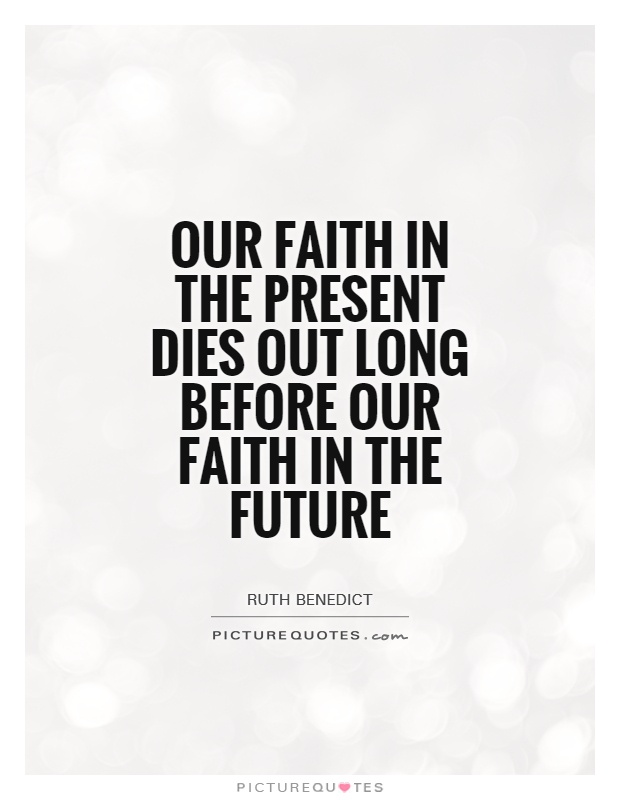Our faith in the present dies out long before our faith in the future

Our faith in the present dies out long before our faith in the future
Ruth Benedict, an influential American anthropologist, is known for her work in cultural anthropology and her studies on the diversity of human societies. One of her most famous works is the book "Patterns of Culture," in which she explores the ways in which different cultures shape the beliefs and behaviors of their members. In this context, the quote "Our faith in the present dies out long before our faith in the future" takes on a new significance.Benedict's work often focused on the ways in which cultural beliefs and practices shape individuals' perceptions of the world around them. She argued that culture plays a significant role in shaping our beliefs, values, and behaviors, and that these cultural influences can have a profound impact on how we view the present and the future.
In many cultures, faith in the present is closely tied to the beliefs and practices of the past. People often look to their cultural traditions and histories for guidance and meaning in the present moment. However, Benedict suggests that our faith in the present can wane over time, as we become disillusioned with the realities of our current circumstances.
On the other hand, our faith in the future may remain strong, even in the face of present challenges and uncertainties. Benedict argues that our beliefs about the future are often shaped by our hopes and aspirations, rather than by the realities of the present moment. We may hold onto our faith in the future as a source of comfort and inspiration, even when our faith in the present begins to falter.












 Friendship Quotes
Friendship Quotes Love Quotes
Love Quotes Life Quotes
Life Quotes Funny Quotes
Funny Quotes Motivational Quotes
Motivational Quotes Inspirational Quotes
Inspirational Quotes